The Supporting Actress Smackdown of 1987, the last episode of this season, is approaching. As we did with the '38 Oscar lineup, we invite you to peruse the biographies and careers of these stupendous actresses. The 60th Academy Awards may be one of the few times all of the contenders were single-nomination actresses, but that doesn't mean their legacies and stories aren't fascinating. These women make up an impressive lot that includes Argentinean acting royalty, a Presidential candidate's cousin, and one of Old Hollywood's queens of comedy…
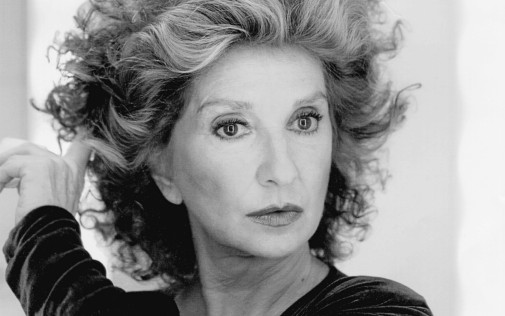
NORMA ALEANDRO (1936-?)
The Grande Dame of Argentinean theater and film, Buenos Aires-born Norma Aleandro is part of a dynasty of performers. Influenced by her family, she started working while still a child, stepping on stage for the first time when she was just nine years old. By the early 70s, she was a renowned name in her country. However, Aleandro's vocal opposition to the dictatorship ravaging her nation would cost her dearly.
Because of her outspoken political resistance against tyrannical oppression, she spent part of her life exiled in Uruguay and Spain, only returning to Argentina after the military junta fell in the early 80s. Such heartfelt beliefs were likely one of the reasons Aleandro was attracted to the project that would forever change her fate. 1985's The Official Story is a caustic tale of passive complicity with the abuse of an unjust regime, and Aleandro's performance as the picture's protagonist is nothing short of miraculous.
When the film bowed at Cannes, she tied with Cher for the Best Actress prize, and, considering all the international acclaim she received, it's likely that the Argentinean actress wasn't very far away from an Oscar nomination. Unfortunately, that honor would have to wait a little bit. It was in '87 that Gaby: A True Story earned the actress a citation from AMPAS. In her home country, Aleandro has been nominated seven times for the Silver Condor. She won the coveted Critics Prize in 1985 for The Official Story, in 1996 for Autumn Sun, and in 2001 for Son of the Bride.
Essential Viewing: The Official Story (1985), Gaby: A True Story (1987), Autumn Sun (1996), Son of the Bride (2001), Live-in Maid (2005).
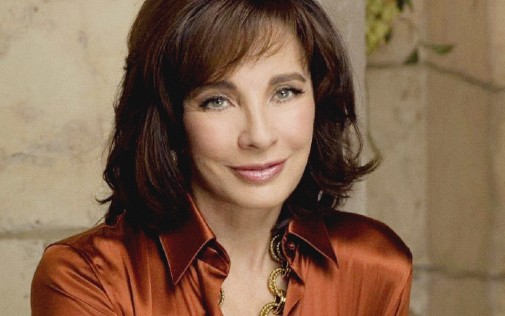
ANNE ARCHER (1947-?)
Like her fellow '87 Best Supporting Actress nominee Norma Aleandro, Anne Archer was born to a show business family. It's no wonder, then, that she decided early that she wanted to be an actress. After graduating from Pitzer College in 1968, Archer started doing stage work and, not long after, became a regular presence on the sets of New York produced TV shows. In 1973, for instance, she played the Natalie Wood's part in the televised long-form remake of Bob & Carol & Ted & Alice.
As far as movies are concerned, Archer appeared in many smaller projects throughout the 70s and early 80s. Her bigger pictures tended to cast Archer in supporting roles, though she got some leading parts in projects such as the 1976's Sam Elliott-starring drama Lifeguard. During this period, Archer still found most of her meatier roles on the small screen, like the CBS soap opera Falcon Crest. 1987's Fatal Attraction, with its seismic cultural impact and smashing box office results, was Archer's biggest film success and remains her most famous role. It seems fitting that her sole Oscar nomination comes from that picture.
During the 90s, Archer would branch out a bit, achieving success in varied projects, from Robert Altman's ambitious Short Cuts to the Jack Ryan movies starring Harrison Ford. In more recent years, Archer has faded a bit from the spotlight, but that doesn't mean her career is any less rich or impressive. On stage, she has found success playing major roles like that of Mrs. Robinson in the West End production of The Graduate and as Jane Fonda in The Trial of Jane Fonda.
Essential Viewing: Lifeguard (1976), Fatal Attraction (1987), Patriot Games (1992), Body of Evidence (1993), Short Cuts (1993).
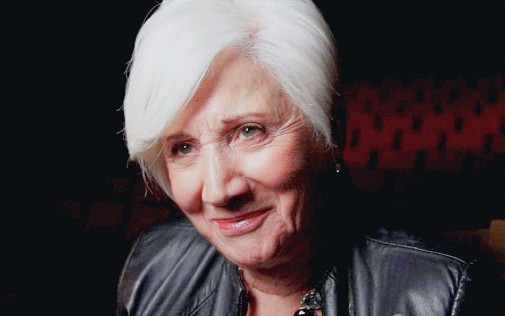
OLYMPIA DUKAKIS (1931-?)
Born to two Greek American immigrants, Olympia Dukakis didn't start as an actress. In college, she studied physical therapy and worked in this field during the terrible polio epidemic of 1952. After that experience, she decided to return to university, studying performing arts this time around. By the early 60s, Dukakis had become a successful stage actress, making a name for herself in summer stock and Shakespearean companies before arriving at Broadway as an understudy in the 1962 production of The Aspern Papers. That same year, she won an Obie Award for her work in the Off-Broadway production of A Man's Man.
Around that time, Dukakis also started doing television work, quickly learning how to calibrate her stage-trained acting for the camera. Starting with 1964's Twice a Man, she also began to dabble in cinema, though it would take a long time before she gained the name recognition she so richly deserved. After many years doing theatre, instructing at New York University, and doing small parts for film and TV, Dukakis finally got her big break. She and her husband, Yugoslav-American actor Louis Zorich, auditioned for the roles of Cher's parents in Norman Jewison's Moonstruck. Only she got the part and, as they say, the rest is history.
Not only was her career in a glorious upswing at this time, but her cousin, Michael Dukakis, was also the Presidential Candidate representing the Democratic Party. After winning her Oscar for Moonstruck, Olympia Dukakis was even a delegate from New Jersey at the 1988 Democratic National Convention. In the years since, the actress has turned into an acclaimed character actress of the screen, though she never completely left the stage behind. In 1999, for example, she starred in the one-woman show Rosa, for which she was nominated for a Drama Desk Award.
Essential Viewing: Moonstruck (1987), Steel Magnolias (1989), Tales of the City (1993), Away from Her (2006), Cloudburst (2011).
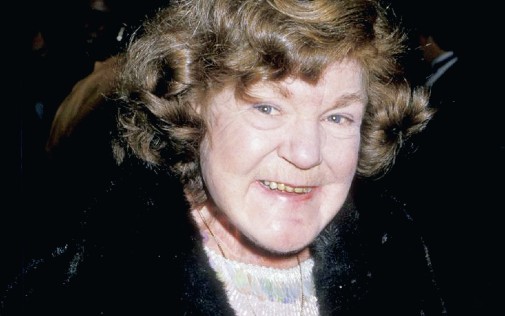
ANNE RAMSEY (1928-1988)
When examining Anne Ramsey's filmography, one might not guess her origins. Long before she ever graced the screens as a weathered battleax, the would-be Oscar nominee made her debut to Connecticut's society alongside Jacqueline Bouvier. However, Ramsey's sights weren't set on American high society, but on the acting business. When she was seven, Ramsey was part of a Shakespeare camp and, right after graduating from college, she started her life as a working actress.
It wasn't always easy and, alongside her husband, fellow character actor Logan Ramsey, Anne had to supplement her income with other jobs. In the early 60s, for example, she organized awards dinners for the NFL, and Dustin Hoffman worked for her as a messenger boy. It was during these years that she also met Geraldine Page, Ed Asner, and Barbra Streisand, with which Ramsey became lifelong friends, regularly exchanging recipes.
As the 70s dawned, she would find work as a performer of bit parts in film and TV. Her heavyset figure, scowling visage, and growling voice made her the butt of many cruel gags and jokes. However, even in small doses, she was an arresting and memorable presence. Most of these small characters didn't even have the privilege of a name, but Ramsey made the most of them. Her most famous role, especially for those who were kids during the 80s, is probably that of Mama Fratelli in 1985's The Goonies. That malicious performance propelled the consummate character actress into a new echelon of success, but whatever professional hopes she had were cut short by health issues.
A chronic sore throat revealed itself to be cancer and, just as The Goonies marveled audiences worldwide, Ramsey suffered through chemotherapy and a radical surgery that resulted in the removal and reconstruction of her tongue. Terrified of losing the ability to speak altogether, Anne Ramsey was relieved to discover she could still form words, though with a strong lisp. With her body ravaged by disease, physically weak but strong of will, the actress scored her best role yet in Danny DeVito's Throw Momma from the Train. Overnight, she became famous and even landed an Oscar nomination.
Ramsey took this opportunity and worked as if her time was running out, completing film after film, episode after episode, in the months immediately after the release of the 1987 comedy. Unfortunately, her time was indeed running out. The cancer had returned and, just six months after becoming an Academy Award-nominee, Anne Ramsey died, her beloved husband steadfastly by her side. She left behind a rich filmography, full of memorable scene stealers, one of the most absurd deaths in horror movie history, and a rare broad comedy enshrined in the glow of Oscar gold.
Essential Viewing: Class Reunion (1982), The Goonies (1985), Deadly Friend (1986), Throw Momma from the Train (1987), Weeds (1987).
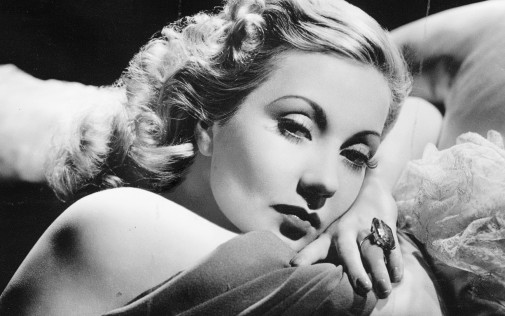
ANN SOTHERN (1909-2001)
Ann Sothern came from a family of musicians. Fittingly, she didn't start out wanting to become an actress, setting her eyes on a music career, whether as a pianist, a singer, or a composer. She excelled in all three fields. However, while visiting her mother, who had become a vocal coach for Warner Bros., Sothern dipped her toes in the movie business, finding work as an uncredited extra. When her contract expired, the novice actress made her way to New York, where she found a home on stage as one of the Ziegfeld Girls. By the mid-'30s, Sothern was a successful Broadway starlet and tried, once more, to make it in the movies.
Originally a redhead, Sothern had started bleaching her hair blonde when she first pursued work as an actress. This career move paid its dues in the late 30s when she was seen as a substitute for Jean Harlow. MGM cast her in the role of Maisie Ravier, a charming Brooklyn showgirl intended for the original blonde bombshell. Maisie, which premiered in 1939, changed Sothern's life, making her an overnight sensation and one of Hollywood's most beloved properties. Overall, MGM produced ten Maisie pictures, a veritable comedy franchise, and, by the end of the 40s, Sothern was trying to get some recognition as an accomplished actress beyond her most famous character.
She did that with A Letter to Three Wives, an Oscar frontrunner whose entire starry cast is blown out of the water by Sothern's canny performance, as charming as it's sharp. I'd have nominated her for Best Actress and it's fair to say that Sothern thought her career was about to enter a new brilliant phase. However, the studio canceled her contract after she contracted hepatitis, marking the first time Sothern's career would be upended by illness. Thankfully, she found her place in early TV, becoming a hot commodity of the small screen with her own sitcoms on CBS and five Emmy nominations to call her own.
Her declining health prevented Sothern from doing much work in the 70s and 80s, with The Whales of August being her first movie in eight years. Olympia Dukakis' win may seem obvious nowadays, but Sothern was considered by many to be a sentimental favorite, much to her chagrin since she wanted to win because people liked her work, not because they wanted to honor a screen veteran. Sothern died in 2001 from heart failure, leaving behind a curriculum spanning six decades of work as an actress in film, TV, stage, and radio. Lucille Ball, with which Sothern had appeared in The Lucy Show would later call her "the best comedian in the business, bar none."
Essential Viewing: Maisie (1939), A Letter to Three Wives (1949), The Best Man (1964), Lady in a Cage (1964), The Whales of August (1987).
Don't forget to watch these actresses' nominated performances and send in your votes for the smackdown.